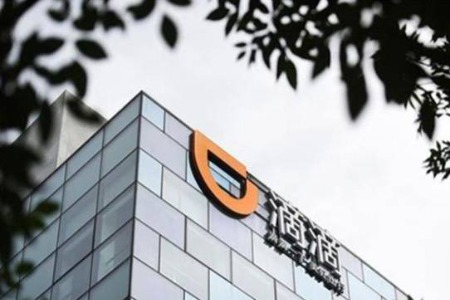
(JW Insights) Apr 14 -- Didi(滴滴), a Chinese ride-hailing giant, has debuted its first concept self-driving vehicle - the Didi Neuron, which the company plans to add to its fleet by 2025, reported Yicai Global on April 14.

Meng Xing, COO of Didi Autonomous Driving, said on April 13 at the event to unveil Didi Neuron that Didi is working with new energy vehicle (NEV) makers in China on developing robotaxis.
The vehicle has no driver's seat, making its passenger space 50 percent larger than other similar cars, and it has 86 percent more legroom, Meng said. It also has robotic arms to help passengers pick up water bottles, carry luggage, and wake them up.
The price of a Didi Neuron was not disclosed, but as a comparison, Chinese tech giant Baidu unveiled its robotaxi, the Apollo RT6, last July and priced it at RMB250,000 ($36,480).
Zhang Bo, CTO of Didi Global and chief executive of Didi Autonomous Driving, said that Didi Autonomous Driving is available in designated areas of Shanghai and Guangzhou through Didi's latest app. It supplements Didi's ride-hailing service, he added.
In addition to robotaxis, Didi Autonomous Driving has a self-driving cargo delivery service called KargoBot, which has a fleet of 100 trucks operating between Tianjin and Inner Mongolia Autonomous Region in northern China. It had notched up total revenue of RMB100 million ($14.6 million) as of the end of March.
Didi founded its autonomous driving business in 2016 and established its first overseas artificial intelligence lab in California in 2017. The Beijing-based firm strengthened its focus on self-driving in August 2019 when it turned the department into a standalone unit to research and develop autonomous driving, apply the firm's products, and further expand the business segment. Its robotaxis became operational in 2020.
Didi Autonomous Driving has been safely operating for 1,020 days, with the unit's team growing three-fold since 2020 to nearly 1,000, according to Meng.
China's self-driving auto industry has been particularly active of late. Hesai Group, a Shanghai-based global leader in light detection and ranging technology, went public in New York on February 9, raising $190 million, and on March 22 Baidu received approval as one of the first firms to test fully autonomous vehicles in Shanghai, said the Yicai Global report.
(Chen HX)
RELATED
-
BYD plans to establish a sodium-ion battery plant in eastern China’s Xuzhou with an investment of RMB10 billion ($1.4 billion)
11-20 17:51 -
European Commission President von der Leyen will visit China in wake of the EU’s ongoing probe into China’s subsidies on EV industries
11-20 16:59 -
Chinese auto giant Changan Automobile plans to launch eight self-developed battery cells in the future
11-20 16:26
READ MOST

No Data Yet~







